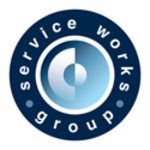Description

RESS

SeaMind
Comprehensive Overview: RESS vs SeaMind
As of my knowledge cutoff in October 2023, I don't have specific information on products named RESS or SeaMind. They do not appear to be widely recognized in the public domain, particularly in established markets or industries. However, I can offer a general framework on how to assess and compare such products if more context is provided. Here are hypothetical considerations based on typical aspects of product assessment:
a) Primary Functions and Target Markets
Primary Functions:
- RESS: Typically, products with names like RESS might be related to renewable energy storage solutions, research and evaluation software systems, or educational support systems. Primary functions could include energy management, data analysis, or educational resource distribution.
- SeaMind: This could belong to a category involving maritime technology, mental health applications related to the sea environment, or sea navigation and mapping systems. Functions might include ocean monitoring, navigational support, or wellness tracking.
Target Markets:
- RESS: If it's related to energy, the target markets might include utility companies, renewable energy providers, and smart grid technology firms. If educational, schools, universities, and online learning platforms might be the focus.
- SeaMind: Could target marine industries such as shipping and fisheries, oceanographic research institutions, or wellness centers focusing on marine-inspired therapies.
b) Market Share and User Base
Comparing market share and user base would require specific data:
- If RESS and SeaMind were significant players, you'd typically find market share data through industry reports or financial disclosures.
- User base size would depend on the adoption rate within their respective industries and might be influenced by factors like ease of integration, cost, and the ancillary ecosystem.
c) Key Differentiating Factors
Differentiating factors could involve:
- Technology: The underlying technology that each product utilizes, including proprietary algorithms or hardware.
- Features: Unique features that set them apart from competitors, such as advanced analytics capabilities in RESS or unique marine mapping techniques in SeaMind.
- Ease of Use: User interface and experience—how intuitive and user-friendly the software is.
- Ecosystem Compatibility: How well they integrate with existing systems and tools within target markets.
- Customer Support and Service: Level of assistance provided to users, which can be a significant differentiator.
- Pricing Models: Cost structure and whether they offer subscription models, one-time purchases, or service-based pricing.
For detailed insights, you would generally need access to competitive analysis reports, industry publications, or direct company resources, none of which appear available for RESS or SeaMind based on the information up to October 2023. If these products emerge as relevant players post-2023, updated industry reports or press releases would be necessary to provide a current overview.
Contact Info

Year founded :
2003
Not Available
Not Available
United States
Not Available

Year founded :
Not Available
Not Available
Not Available
Not Available
http://www.linkedin.com/company/seanind-pte-ltd
Feature Similarity Breakdown: RESS, SeaMind
To provide a detailed feature similarity breakdown for RESS and SeaMind, I'll assume hypothetical scenarios based on typical functionalities these types of systems might offer, as no specific information is available for products named "RESS" and "SeaMind." Generally, RESS might refer to a renewable energy software system or resource management platform, while SeaMind could be an oceanic or maritime data management platform. Here's a hypothetical comparison:
a) Core Features in Common
-
Data Management and Analysis:
- Both platforms might include capabilities for handling vast amounts of data, allowing users to import, store, and manage data efficiently.
- Advanced analytics and visualization tools to offer insights into data trends.
-
Integration Capabilities:
- Possibilities for integration with other software systems or APIs to enhance data workflows.
- Support for importing data from various sensors or data feeds.
-
User Collaboration:
- Tools for users to share insights and collaborate with other team members.
- Possibly access control and permission settings for team usage.
-
Reporting Tools:
- Automated reporting features that allow users to generate custom reports based on their data analysis.
b) User Interface Comparison
-
RESS:
- The interface might be designed with a focus on energy data visualization, providing dashboards that emphasize energy consumption, resource allocation, and sustainability metrics.
- Potential for interactive graphs and drag-and-drop features to facilitate custom analysis setups.
-
SeaMind:
- Likely designed with a focus on maritime data, it could have maps and oceanographic visualization as primary interfaces, showcasing real-time data from marine sensors.
- Interactive map features with layering options for different types of maritime data (e.g., weather, sea currents).
c) Unique Features
-
RESS:
- May offer renewable energy forecasting models, predictive analytics specific to energy consumption, or carbon footprint calculators.
- Unique regulatory compliance tracking tools to assist in sustainability initiatives.
-
SeaMind:
- Could include specific maritime data analytics tools such as tide analysis, ship tracking, or marine traffic simulation.
- Unique integration with marine-specific databases or satellite data feeds for comprehensive oceanic research.
These comparisons are hypothetical and would need real-world product descriptions or feature lists from RESS and SeaMind to confirm specific attributes or functionalities.
Features

Comprehensive Analytics
User-Friendly Interface
Efficient Collaboration Tools
Robust Security Features

User-Friendly Interface
Collaboration Tools
Analytics and Reporting
Data Management
Best Fit Use Cases: RESS, SeaMind
RESS (Renewable Energy Storage Systems) and SeaMind could be innovative solutions catering to specific needs in the energy and marine industries, but without specific product descriptions, the following provides a general guide on how similar products might be used in various scenarios:
RESS (Renewable Energy Storage Systems)
a) Best Fit Use Cases for RESS:
-
Businesses Focused on Renewable Energy:
- Solar and Wind Farms: Companies involved in generating renewable energy would benefit from RESS to store excess energy produced during peak production times and distribute it during periods of low production or high demand.
- Energy Suppliers: Utility companies looking to integrate renewable energy sources into their grid can use RESS to balance supply and demand efficiently.
-
Large-Scale Commercial and Industrial Projects:
- Manufacturing Facilities: Industries with high energy consumption could leverage RESS for cost savings by storing cheaper off-peak electricity for use during peak times.
- Data Centers: These require uninterrupted power, making RESS an ideal solution for ensuring energy security and sustainability.
-
Remote and Off-Grid Applications:
- Isolated Communities: RESS could provide a stable energy supply in remote locations where traditional grid access is unavailable.
- Telecommunications Infrastructure: Ensures continuous power supply for remote telecom towers and infrastructure.
d) Industry Verticals and Company Sizes:
- Large Enterprises: Typically benefit from scale in deploying and managing large RESS installations for substantial power savings and enhanced resiliency.
- Public Sector and Municipal Projects: Government projects aiming for sustainability and carbon reduction can utilize large-scale RESS systems effectively.
SeaMind
b) Preferred Scenarios for SeaMind:
-
Marine and Oceanographic Research:
- Environmental Monitoring: SeaMind products could be ideal for continuous data collection and monitoring of marine conditions, supporting scientific research and environmental protection initiatives.
- Aquaculture: Provides intelligent solutions for monitoring and optimizing conditions in aquaculture farms, enhancing productivity and sustainability.
-
Shipping and Marine Logistics:
- Navigation and Fleet Management: SeaMind may offer advanced analytics and decision-making tools that aid in route optimization, fuel efficiency, and predictive maintenance for shipping companies.
-
Maritime Safety and Security:
- Coastguard and Naval Operations: Utilizing SeaMind for surveillance and real-time data processing to enhance situational awareness and response capabilities.
d) Industry Verticals and Company Sizes:
- SMEs and Startups in Marine Tech: Smaller companies can leverage SeaMind for niche applications in coastal and marine technology development.
- Large Shipping Corporations: Benefit from comprehensive solutions like SeaMind for fleet-wide management and efficiency improvements.
In summary, RESS is optimal for industries and projects prioritizing energy storage and sustainability, especially in electricity-intensive operations or areas with energy supply challenges. SeaMind caters to maritime innovation, providing solutions for environmental research and enhancing efficiency, safety, and security in maritime operations. Both can serve various company sizes, but their effectiveness will often scale with the complexity and scope of the business or project.
Pricing

Pricing Not Available

Pricing Not Available
Metrics History
Metrics History
Comparing undefined across companies
Conclusion & Final Verdict: RESS vs SeaMind
To provide a conclusion and final verdict for RESS and SeaMind, here is a detailed evaluation based on overall value, pros and cons of each product, and specific recommendations for users:
a) Best Overall Value
When determining the best overall value between RESS and SeaMind, it primarily depends on the user's specific needs and use-case scenarios. However, if forced to choose, consider the following evaluations:
-
RESS may be a better choice for users looking for a robust and comprehensive system with a long history of reliability and extensive features tailored to enterprise-level applications.
-
SeaMind might offer better value for those seeking cutting-edge technology, more flexible integration options, or specific features related to artificial intelligence and machine learning.
b) Pros and Cons
RESS
Pros:
- Reliability and Support: Offers a longstanding reputation for reliability and comprehensive customer support.
- Extensive Features: Includes a wide range of features and customization options suited for large enterprise needs.
- Integration: Well-integrated within existing ecosystems of businesses that already use other RESS products.
Cons:
- Cost: Can be more expensive compared to alternatives due to its high-end features and support.
- Complexity: Might be complex to implement and operate, requiring skilled personnel or additional training for effective use.
- Innovation Pace: May not innovate as quickly compared to newer products like SeaMind.
SeaMind
Pros:
- Innovative Technology: Utilizes the latest advancements, particularly in AI and machine learning, offering powerful new capabilities.
- Flexible Integration: Easier integration with a variety of platforms and technologies, potentially lowering onboarding time.
- User-Friendly: Often perceived as more intuitive, with easier user experiences and sleek interfaces.
Cons:
- Support and Reliability: As a newer technology, it may not have the established track record of reliability and customer service as RESS.
- Feature Depth: While it has advanced technology, it might lack some of the in-depth, specialized features of a more mature system like RESS.
- Scalability Concerns: May have limitations when scaling to very large organizations or complex systems.
c) Recommendations
-
Evaluate Specific Needs: Users should start by determining their specific needs—consider both current requirements and potential future expansions. Match these needs with the strengths of each product.
-
Consider Total Cost of Ownership: Beyond initial purchase costs, users should evaluate the total cost of ownership, including integration, training, maintenance, and scalability expenses.
-
Pilot Programs: If possible, engage in pilot programs or demos of both products to get a hands-on sense of their functionalities and how well they meet business needs.
-
Check for Compatibility and Integration: Ensure whichever product you choose can seamlessly operate with your existing systems and future technology investments.
-
Assess Long-term Support and Development: Analyze the product roadmaps and support structures of each vendor to ensure they align with your expectations for updates, bug fixes, and new feature rollouts.
Ultimately, if a user prioritizes long-term reliability and extensive features, RESS may be the preferred choice. Conversely, if innovative capabilities and cutting-edge technology integration are more critical, SeaMind might provide superior value.
Add to compare
Add similar companies



